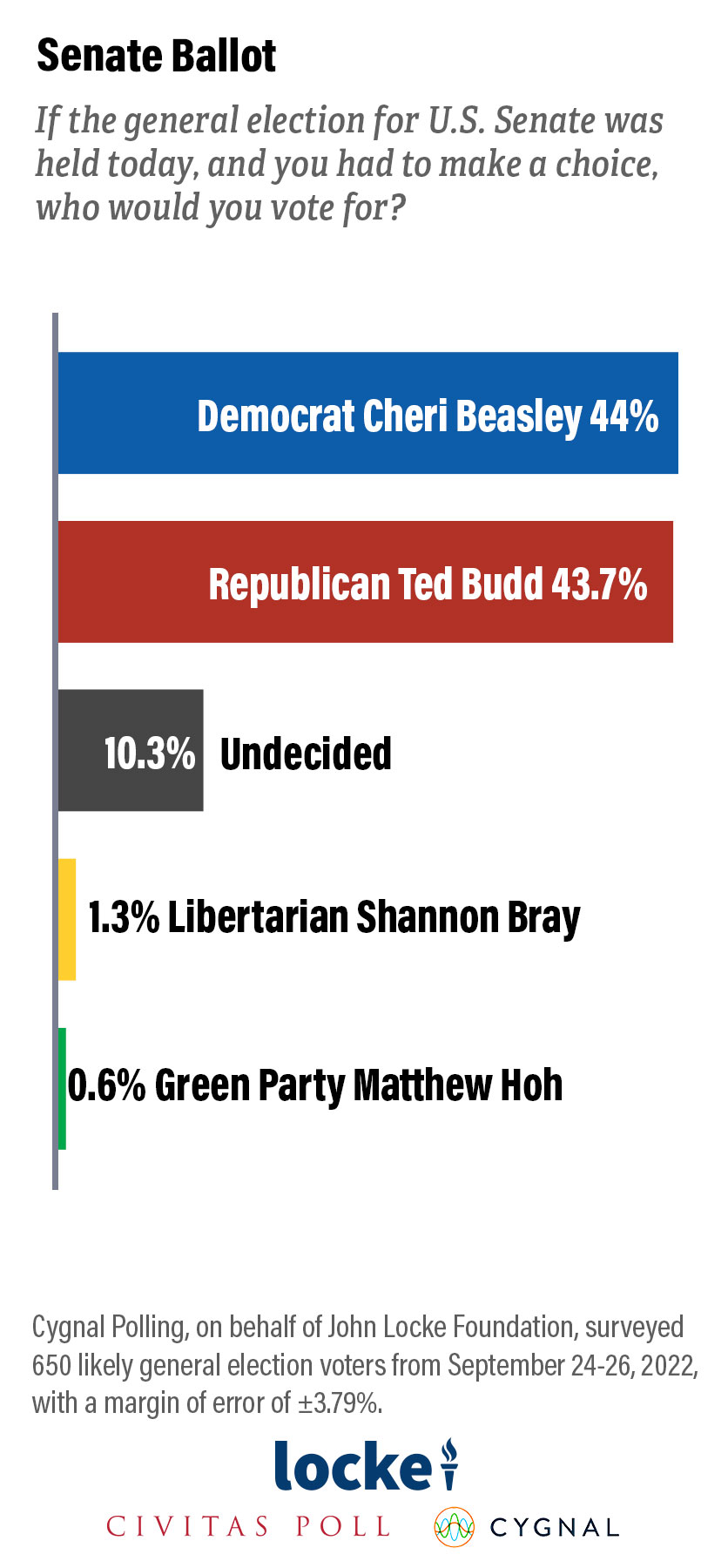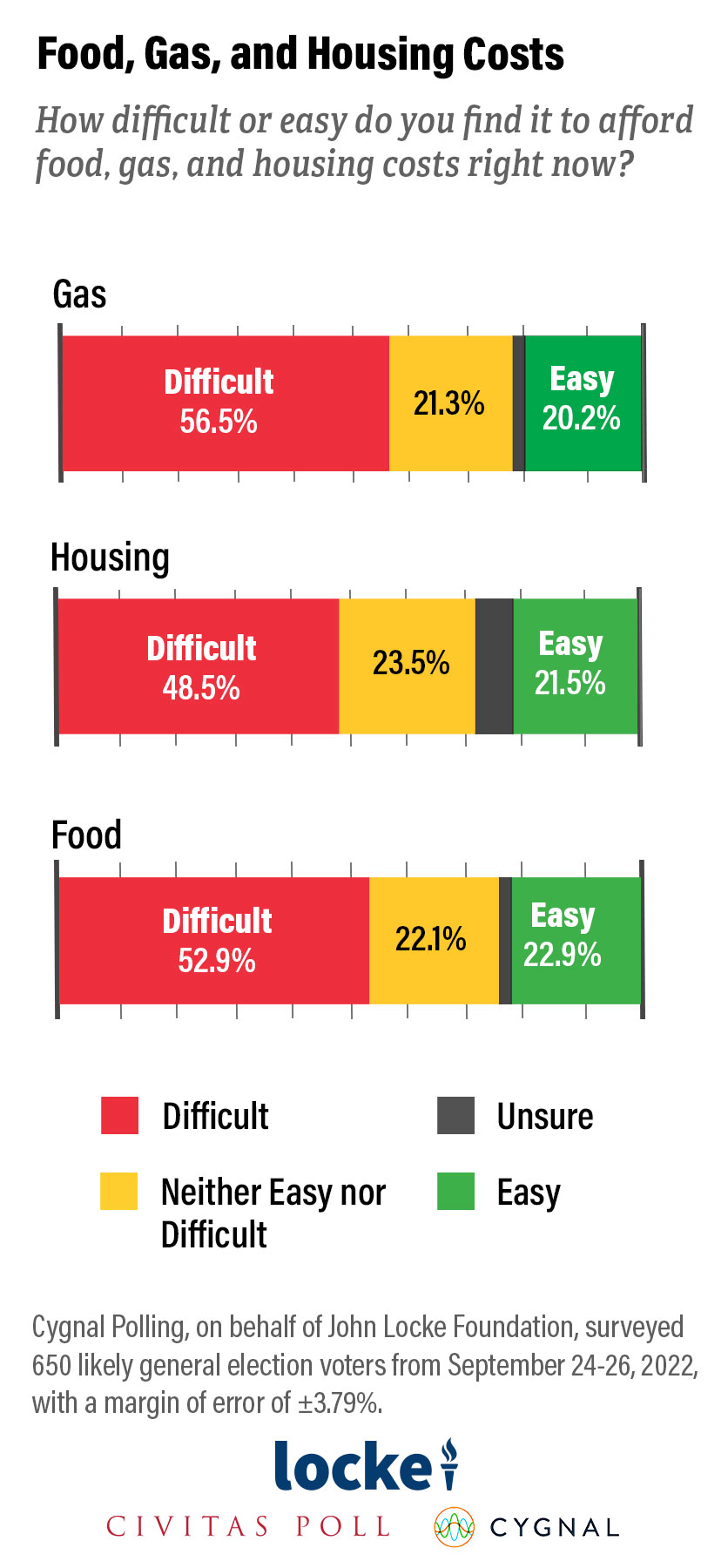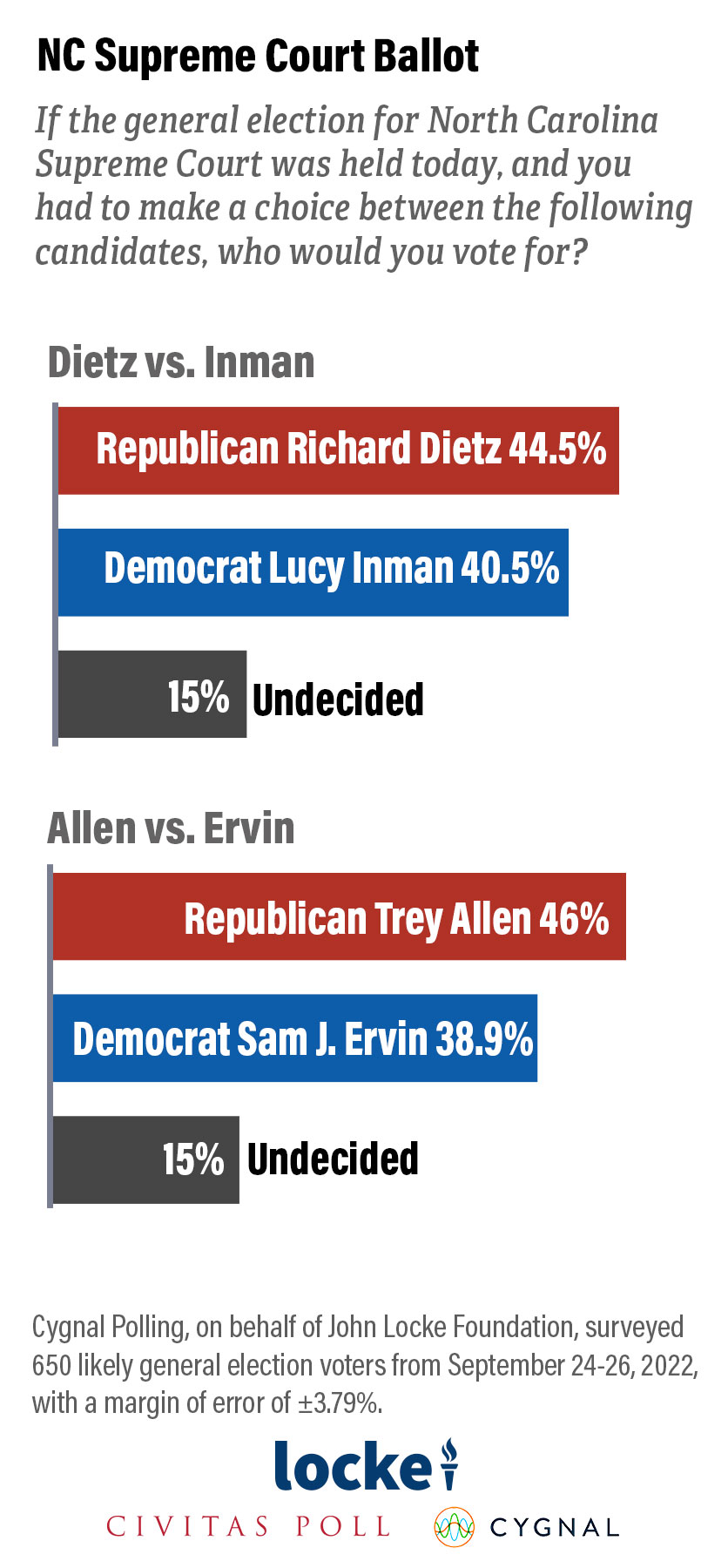September 29, 2022
RALEIGH – The U.S. Senate race in between candidates Ted Budd (R) and Cheri Beasley (D) is in a statistical tie according to a late September Civitas Poll. The results show Beasley garnering 44% support from likely voters and Budd receiving 43.7%. Of those who plan to vote for Budd or Beasley, 60% of men are likely to vote for Budd, and 59% of women are voting for Beasley. With less than six weeks to go, one-in-ten voters remain undecided.
“This race to replace Senator Richard Burr continues to be a nail-biter as we hit the 40-day mark until November 8,” said John Locke Foundation President Donald Bryson. “The general election outcomes are likely to be determined by the ten to fifteen percent of North Carolinians who remain undecided. With less than three weeks until the polls open for early voting, we can expect to see a further ramp-up of the political ad dollars being spent in our state.”
The generic ballots for state legislature and U.S. Congress are tightening up as well. At the state legislature, the generic Republican candidate (46.6%) is slightly edging out support for the generic Democratic candidate (44.5%). The generic U.S. Congressional race came in with a wider margin – 47.5% and 44.2% – for Republicans and Democrats, respectively.
“For Republicans to hold a lead, even a small one, on the generic ballots is bound to make Democratic strategists uneasy, but Congressman Budd is still polling behind the generic Republican” continued Bryson.
With the balance of power at stake at North Carolina’s State Supreme Court, the sizable gap between the Republican and Democratic candidates is stark. Republican candidate Richard Dietz leads Democratic candidate Lucy Inman by four percentage points, and Republican Trey Allen leads Democrat Sam J. Ervin (incumbent) by 7.1 percentage points. However, more North Carolinians are undecided for these races than the U.S. Senate, Congressional, and state legislative races, as 15% of respondents remain undetermined.
When it comes to recession concerns, North Carolinians are overwhelmingly united: nearly 85% believe the United States is heading toward (if not already in) a recession. When asked whether there will be an economic recession in the next 12 months, 55.9% said recession was likely, and another 28.6% said we are already in a recession. More than half of North Carolinians find it difficult to afford gas (56.5%) and food (52.9%), and those who do were twice as likely to respond that we are currently in a recession. Eastern North Carolinians are most likely to express difficulty affording groceries (61%), while Triangle residents are the least likely (46%).
“Inflation is eating into the pocketbooks of families across the state, and the effects of the spending bills constantly coming down from DC have certainly not dodged the Tar Heel State. High prices will not disappear as an election issue in the next few weeks, or maybe even year.”
President Joe Biden’s approval rating, although slightly improved, is still significantly underwater. The share of North Carolinians who approve of the job the president is doing sits at 39.3% – up from 32.9% in June. Biden’s disapproval rating is 54.9%. Governor Roy Cooper’s approval rating – 45% – remains steady, not wavering more than 3 points in either direction in over a year.
While neither the president nor governor has a majority of North Carolinians’ support, voter I.D. does. The Civitas Poll found 62.6% of North Carolinians agree that voters should have to present photo identification before submitting their ballot. Democrats are more likely to oppose voter I.D. than Republicans but are also more likely to be apathetic about the issue altogether. Of self-identified Democrats, 16% responded they “neither agree nor disagree” with voter I.D., compared to a mere two percent of Republicans. Of those who support voter I.D., 75% stated they believe the state legislature, rather than the U.S. Congress, should determine election law in the state.


